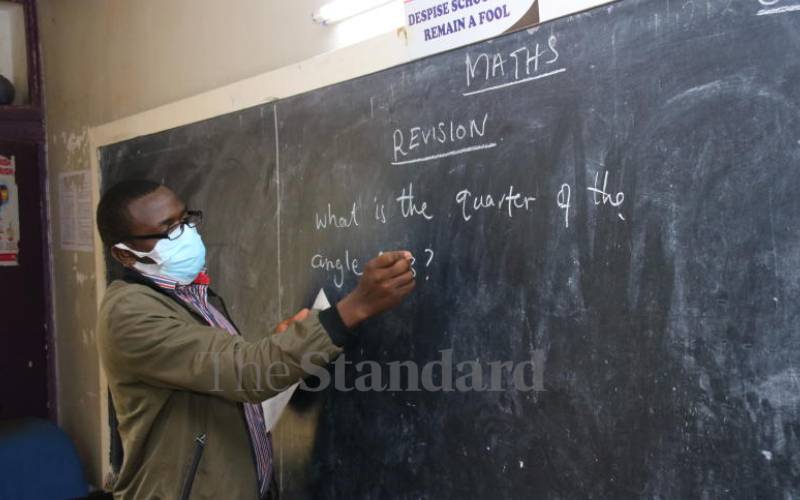×
The Standard e-Paper
Home To Bold Columnists

Some teachers have stagnated in the same job groups for more than 20 years. [David Gichuru, Standard]
Basic education is at the crossroads – the subsector now needs strong, effective and visionary leadership that would guide education managers, policy developers, learners, parents, teachers and their employer towards common objectives and goals.